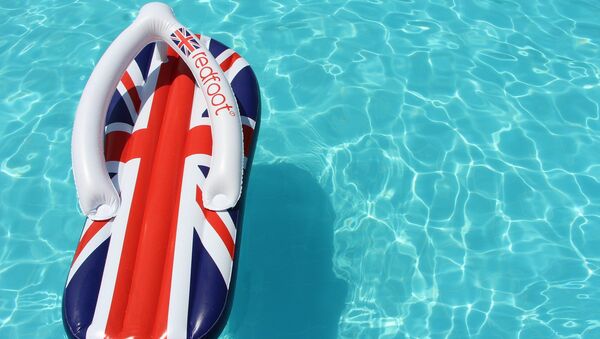UK Labour leader Jeremy Corbyn will visit the Abbey Pumping Station on Friday. The politician has criticized water privatization under utility companies, citing a lack of investment in the water industry.
"Water should be provided for public good, not private profit," Corbyn stated. "Thanks to the failures of privatised water companies, our water infrastructure is crumbling, and people are forced to pay through the nose for services."
"Under Labour's plans to bring our water system into public ownership, profits will be reinvested so that households across the UK have better services and lower bills."
Water is a natural resource for everyone.
— Jeremy Corbyn (@jeremycorbyn) September 7, 2018
It should not be used for private profit.
Labour will bring it into public ownership.https://t.co/w3hY8m3lDT
In a statement, the party addressed dire shortcomings in Britain's water industry, including a 20 percent leakage of water before supplies reach homes, or 7.5 trillion litres between 2010 to 2017, equating to roughly the size of Loch Ness.
Labour used Ofwat statistics to determine that privatisation of British industries quadrupled profits for water companies and their shareholders. However, investment in water supply infrastructure remains lower than in 1990, with utility bills increasing 40 percent.
READ MORE: Freedom Isn't Free: A Look Into Jeremy Corbyn's BBC Charter Proposals
Rebecca Long Bailey MP, Labour's Shadow Business, Energy and Industrial Strategy Secretary, said that the figures presented showed that the "current water system is broken."
"It cannot be right that private companies are ballooning in value while customers pay the price in poor services and rising bills," Bailey stated. "These companies operate regional monopolies, giving customers no choice in who supplies their water."
"Labour will replace this dysfunctional system with a network of regional, publicly-owned water companies. Surplus profits will be reinvested in improving vital infrastructure and reducing customer bills."
An April 26 Ofwat report illustrated problems between public and private ownership, including a lack of recorded data on customer serviced pipelines (CSPL). It also noted that there was no long-term strategy for managing and maintaining them, despite the fact they make up 40 percent of Britain's water network and account for 22 percent of total leakages.
"Currently, the average customer supply pipe losses are about 30 l/prop/day (about 8% of household consumption), and are projected to reduce to 18 l/prop/day in 2045," it highlighted.
READ MORE: Internet Tax: Jeremy Corbyn Plans Windfall Levy on Google, Amazon and Facebook
"CSPL currently accounts for 22% of total leakage, interestingly this rises to 26% of total leakage by 2045 (due to forecast reductions in distribution leakage)." Many problems in supply leakage begin with CSPLs, which are the responsibility of private home owners and landlords, not water utility companies, the report stated.
The report researched the benefits of bringing such systems under public ownership, but concluded that while transferring private supply lines to water supply companies would offer benefits, there was less evidence about the "range of potential impacts on water bills for various customers" and decided not to carry out further work to transfer ownership.
Michael Gove, UK secretary of state for the Department of Environmental, Food, and Rural Affairs (DEFRA), invited eight of eighteen companies failing to meet leakage targets to an upcoming meeting to address the "serious issue and improve their performance."
South Staffordshire, Bristol, Severn Trent, Portsmouth, Yorkshire, Essex and Suffolk and Thames Water all failed to meet Ofwat standards, PoliticsHome reported. Gove slammed the water companies amidst a prolonged heatwave and droughts, the driest since 1961.
"That is why I have repeatedly made clear that companies must improve and recently wrote to them to outline my expectations during this period of dry weather," Grove said in July.




